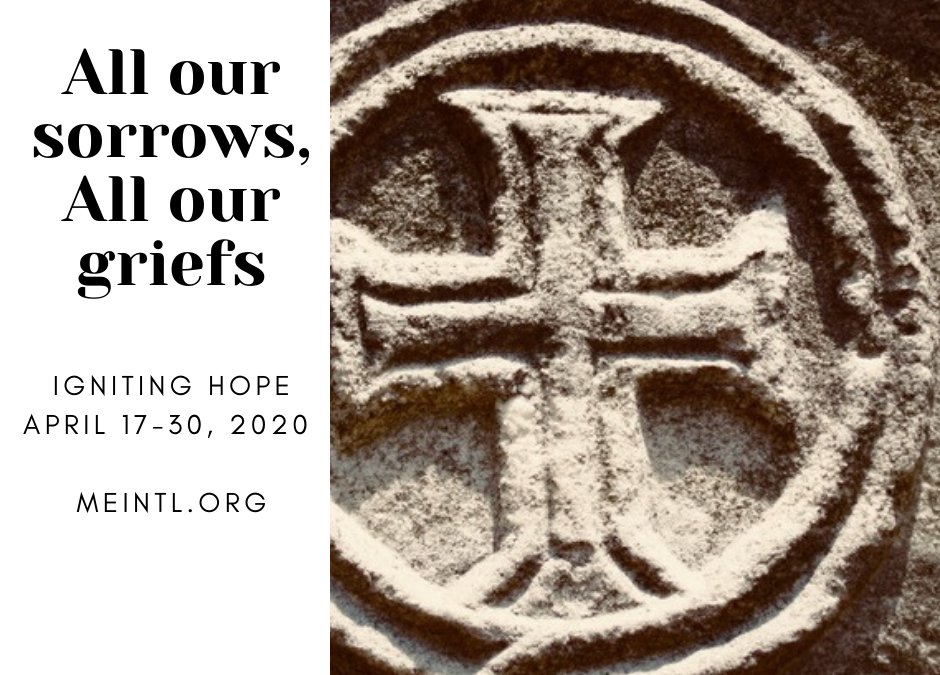Monica sat hunched over her sewing machine frantically sewing face-masks for her family, while her living room furniture was pushed back against the walls to make room for the 6-month supply of toilet paper, nearly 30 of bottles of hand sanitizer, several boxes of 1000-count gloves, cases of drinking water, and dozens of cans of chili, chicken noodle soup, and creamed corn.
Her hair was wadded up in a messy bun, she was still wearing her sweatpants from 3 days ago, and dirty dishes were piled up in the sink. “I’m just leaving all that stuff so I can finish sewing the masks.” She looked like she was preparing for war. She felt like she was preparing for war. She felt lost.
As I listened to Monica’s story, I was struck by how many similar stories I’ve heard in the past weeks. While people are trying to put on good “stiff-upper-lip” wartime faces, inside there is a crumbling sense of self. We are engaging in behaviors we never thought we’d see ourselves doing. Or not doing things we always thought were foundational to who we are in the world. In the same way we experience a loss of assumptive belief about who God is in the midst of traumatic stress (see Day 3), we can also experience a loss of assumptive belief of who we are.
As one writer put it, we have not just been exposed to COVID, we have been exposed BY COVID. We feel out-of-control (because we are!). We cannot seem to find ourselves as we have lost jobs, focus, routine and rhythm, and can no longer function in the roles that brought us satisfaction, joy, and a sense of our place in the world.
As we navigate these days of work-furloughs and lay-offs, isolation and limited connection, lack of motivation and vitality, the assumptions about who we believe ourselves to be are being stripped. COVID has many of us feeling exposed, vulnerable, and not even recognizing ourselves in the morning mirror. Our natural inclination is to just get busy. Sewing. Serving. Eating. Drinking. More blogging. More Zooming. Even getting busier in prayer and Bible study. Anything to regain a sense of control, a sense of identity. What if our reorientation, instead, is to be found in the very stillness and solitude in which we find ourselves?
ACTION: Read Psalm 62. Reread verses 1-2, 5-6. “My soul waits in silence before God.” How do you find yourself responding to these verses? What stirs in you as you think about “waiting” and “silence.” What do you need to hear from God today about who you are?


